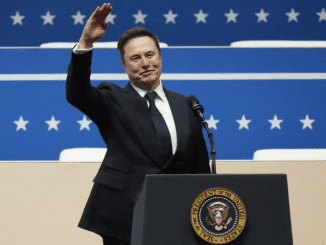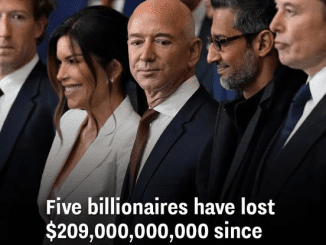

In a recent interview with Fox News, former President Donald Trump expressed grave concerns about what he deemed as the “greatest threat to humanity” that could potentially lead to the end of the world. Trump’s warning comes amidst growing global tensions and uncertainties surrounding various socio-political and environmental issues that continue to plague the world. During the interview, Trump highlighted the escalating tensions between major world powers, particularly the United States and China, as one of the key factors contributing to the potential downfall of humanity. He emphasized the need for diplomacy and strategic decision-making to prevent a catastrophic global conflict that could have devastating consequences for all.

Moreover, Trump also pointed towards the looming threat of climate change as another pressing issue that poses a significant risk to humanity’s survival. He stressed the importance of addressing environmental challenges such as rising sea levels, extreme weather events, and deforestation, urging world leaders to take immediate action to mitigate the impact of climate change on the planet. The former President’s warning echoes sentiments shared by many experts and scientists who have long been advocating for urgent measures to combat the existential threats facing the world. The recent Intergovernmental Panel on Climate Change (IPCC) report has underscored the severity of the climate crisis and the need for immediate and decisive action to reduce greenhouse gas emissions and limit global warming to prevent irreversible damage to the planet.

In addition to geopolitical tensions and climate change, Trump also raised concerns about the rapid advancement of technology and its potential implications for humanity. He cautioned against the unchecked proliferation of artificial intelligence and other emerging technologies, warning that they could pose a grave threat to human civilization if not properly regulated and controlled. While Trump’s warning may have been met with skepticism and criticism from some quarters, it serves as a stark reminder of the fragile nature of our world and the urgent need for collective action to address the pressing issues that threaten our very existence. It also underscores the importance of global cooperation and solidarity in tackling shared challenges and building a better, more sustainable future for all. As we navigate through these turbulent times, it is imperative that we heed the warnings of leaders like Donald Trump and take proactive steps to address the root causes of the threats facing humanity. Only by working together and adopting a holistic approach to problem-solving can we hope to avert the looming crisis and secure a brighter and more prosperous future for generations to come.



